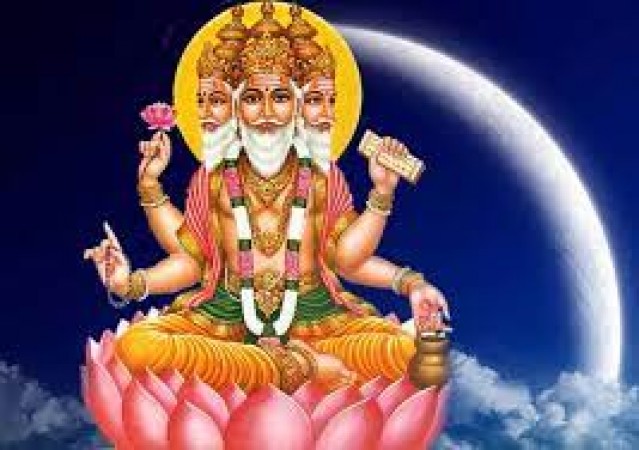
In Hindu cosmology, Lord Brahma holds a significant role as the creator of the universe and all living beings. As one of the principal deities in the Hindu triumvirate, which includes Lord Vishnu (the preserver) and Lord Shiva (the destroyer), Brahma's responsibility lies in the divine act of creation. Lord Brahma, the four-faced deity, plays an integral role in Hindu cosmology as the creator of the universe. His symbolism and myths shed light on the complexity of Hindu beliefs and the cyclical nature of existence. Despite being a revered deity, Lord Brahma's worship is relatively limited, yet his significance remains paramount in the grand tapestry of Hindu mythology. As the architect of the cosmos, Brahma's divine presence continues to inspire awe and wonder among those who delve into the mystical world of Hindu cosmology.
According to Hindu scriptures, the universe undergoes cycles of creation, preservation, and destruction. Lord Brahma emerges at the beginning of each cosmic cycle, known as a "kalpa." The process of creation begins when Lord Vishnu awakens from his cosmic slumber on the serpent Shesha, and a lotus emerges from his navel. Brahma, seated on this lotus, emerges as a four-faced deity, representing the four Vedas (ancient Hindu scriptures) and the four cardinal directions. Lord Brahma is famously depicted with four faces, each carrying profound symbolism. These faces represent the four aspects of the human mind – mind (Manas), intellect (Buddhi), ego (Ahankara), and consciousness (Chitta). They also symbolize the cyclical nature of time, as Brahma oversees the creation, preservation, and eventual dissolution of the universe. Once born, Lord Brahma embarks on the task of creating the cosmos and all its inhabitants. His mind-born sons and daughters are known as the Prajapatis, who are entrusted with populating the world. However, there is a mythological tale where Brahma is humbled by the cosmic power of Goddess Saraswati, who refuses to be his daughter and instead chooses to be his consort and the goddess of knowledge.
Unlike Lord Vishnu and Lord Shiva, temples dedicated solely to Lord Brahma are relatively scarce. The most famous and ancient temple dedicated to Brahma is the Brahma Temple in Pushkar, Rajasthan, India. Legend has it that Lord Brahma performed a yajna (sacred ritual) here to create the universe. His limited worship is attributed to a curse placed upon him by Lord Shiva, as a result of a dispute between the two deities over their supremacy. One of the most intriguing aspects of Lord Brahma is the controversy surrounding his role. While he is the creator of the universe, he is not as actively worshipped as Lord Vishnu and Lord Shiva. Some beliefs suggest that after creating the world, Brahma's role diminishes, leaving the responsibility of preservation and destruction to the other two deities. This, along with the curse and other mythological tales, could be the reasons for his limited worship.
Also read -Goddess Saraswati: The Embodiment of Knowledge, Wisdom, and Arts
Goddess Lakshmi: The Divine Bestower of Wealth and Prosperity